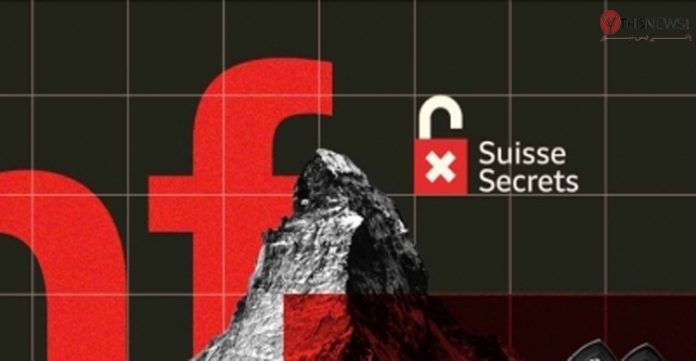As per the latest reports, the ‘Suisse Secrets’ task explores financial balance data spilled from Credit Suisse, Switzerland’s second-biggest moneylender. The release included in excess of 18,000 records that held in abundance of $100 billion at their pinnacles. It is the main known break of a significant Swiss banks client information to journalists.
Switzerland is a known location for cash from everywhere the world, partially in light of its banking secrecy laws. There isn’t anything innately amiss with having a Swiss financial balance. Yet, banks should keep away from clients who brought in cash unlawfully or were engaged with violations – and correspondents distinguished many degenerate government authorities, lawbreakers, and claimed common freedoms victimizers among Credit Suisse account holders, the Organized Crime and Corruption Reporting Project (OCCRP) said in a report.
Regardless of their reputation – which, sometimes, would have been clear from a speedy Google search – Credit Suisse kept up with associations with a portion of these clients for quite a long time, however it is conceivable that a few records were requested frozen by regulation authorization.
The Suisse Secrets project researches these record holders, whose double-dealing of Swiss financial mystery is a perfect representation of how the worldwide monetary industry empowers burglary and defilement.
ALSO READ: Afghan Annual Per Capita Income Dips As Assets Remain Frozen
The Suisse Secrets information was given to the German paper Suddeutsche Zeitung by a mysterious source over a year prior. Nothing is had some significant awareness of the source’s character.
The source, in any case, gave an statement clarifying their inspirations.
It peruses, to a limited extent: “I accept that Swiss financial mystery regulations are shameless. The guise of safeguarding monetary protection is just a fig leaf covering the dishonorable job of Swiss banks as colleagues of assessment dodgers. … This circumstance empowers defilement and keeps non-industrial nations from much-required duty income.
“I need to underscore the way that the obligation regarding this situation doesn’t lie with Swiss banks but instead with the Swiss overall set of laws. Banks are essentially being great entrepreneurs by augmenting benefits inside the lawful structure they work in. Basically, Swiss lawmakers are liable for empowering monetary violations and – by prudence of their immediate majority rules system – the Swiss public have the ability to take care of business.”
Those cases that justified distribution included clients known to have been high-hazard: politically associated individuals or those blamed or indicted for genuine violations. OCCRP said many Credit Suisse accounts had a place with noticeable figures, close by the outrages, criminal examinations, or high-profile political occasions they were engaged with.
One model is Rodoljub Radulovic, a high-positioning individual from one of Eastern Europe’s biggest cocaine-carrying cartels, drove by the infamous Serbian medication master Darko Saric. Radulovic had the option to open a Credit Suisse account regardless of a long history of inclusion in monetary outrages in the US. He then, at that point, utilized it to launder north of 3 million euros of medication cash, Serbian examiners say.
Another is Eduard Seidel, a previous top chief in Nigeria for German media communications goliath Siemens, whose records contained huge number of Swiss francs. Two of them stayed open for very nearly 10 years after charges of his inclusion in a significant pay off outrage in Nigeria initially broke.
Then, at that point, there’s Muller Conrad Rautenbach, a mining head honcho who has transparently bragged his eagerness to pay off his direction to the top, and was endorsed by the US and EU. He opened high-esteem accounts at Credit Suisse even after the UN cautioned he was supposedly regulating degenerate mining bargains in the Democratic Republic of Congo.
The bigger story that joins these cases is that of a significant monetary establishment that permitted clients to bury washed or taken resources. Practically each of the accounts depend on freely accessible data, implying that Credit Suisse’s expected steadiness division would have approached it too, the OCCRP said.
(This story has been sourced from a third-party syndicated feed, agencies. Raavi Media accepts no responsibility or liability for the dependability, trustworthiness, reliability, and data of the text. Raavi Media management/ythisnews.com reserves the sole right to alter, delete or remove (without notice) the content at its absolute discretion for any reason whatsoever.)


